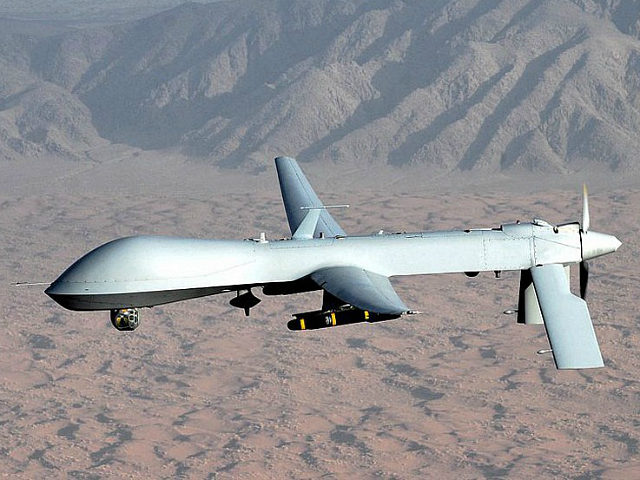The U.S. military, due to a shortage of Air Force pilots and other personnel to operate drones, is relying more on private contractors for reconnaissance missions in Afghanistan and Iraq, reports the New York Times (NYT).
According to NYT:
The Air Force would not disclose many details about the drone contractors. Contractors are typically compensated far more than service members, and some current and former senior Air Force officials said their use could actually exacerbate the shortage in military drone pilots because the pay of the private sector might lure them away.
Pentagon officials told the Times that the U.S. military plans to increase its use of contractors, noting that many of them are “making double or triple their military salaries.”
The move to hire more contractors comes at a time when U.S. budget cuts are leading to military personnel cuts as well as the operation of overused planes and undertrained pilots that are fueling an increase in fatal aviation accidents.
NYT explains:
Since the Sept. 11, 2001, attacks, the Pentagon has used contractors to perform many duties traditionally carried out by uniformed personnel, like protecting military bases and feeding service members. The contractors who are now serving as drone pilots are based in the regions where the drones are flown, and they are legally prohibited from being “trigger pullers” and firing weapons, Air Force officials said. But there is no limit on the type of reconnaissance they can perform, and they are providing live video feeds of battles and special operations.
Nearly a year ago, NYT reported that stress was burning out many American drone operators and forcing the Air Force to trim the number of daily flights amid an insatiable demand for the services of unmanned aircraft in support of U.S. military operations against terrorism.
Citing Air Force officials, the newspaper noted that the branch was projected to lose more drone pilots “worn out by the unique stresses of their work” than they could train.
NYT now notes:
The Air Force was not prepared for this increased demand. Finding pilots was difficult. They typically work long hours in windowless rooms staring at computer monitors and do not get many days off. Many of those who fly armed drones have been found to have post-traumatic stress disorder because they have witnessed so many airstrikes. There is also a powerful perception in the Air Force that drone jobs are less prestigious and glamorous than flying more traditional military aircraft, and recruitment has been hard.
The pilots have also become targets for terrorists who say drones have been used to indiscriminately kill civilians.
“Airmen have delivered time-critical data, prosecuted targets and supported combatant commanders without fail, but we cannot sustain this pace indefinitely,” Deborah Lee James, the secretary of the Air Force, declared last year. “While threats have evolved, the demand for this capability remains constant.”
The demand for drones remains alive and well as the U.S. continues to combat the Islamic State (ISIS/ISIL) and other terrorists across the world.
Amid the intensifying U.S.-led air campaign against ISIS in Iraq, Syria, and Libya over the past 10 months, President Barack Obama’s Pentagon has added four drones operated by private contractors to the nearly 60 that are typically flown daily by uniformed Air Force service members, notes NYT, adding:
Over the next two years, the Pentagon plans to add six more operated by contractors, the officials said. The number and identities of contractors working on the drone flights are considered classified information, the Air Force said. But Pentagon officials said there are at least several hundred contractors, many of them former drone or fighter pilots who are making double or triple their military salaries.
“This is opening up a whole new can of worms — we have seen problems with security contractors on the battlefield since 9/11, and there’s been an improvement in oversight in that area, but that came after a decade of problems,” said Laura A. Dickinson, a law professor at George Washington University, who has written extensively about the U.S. military’s use of contractors. “With drones, this is a new area where we already do not have a lot of transparency, and with contractors operating drones there’s no clearly defined regime of oversight and accountability.”
Despite promising otherwise, President Obama has stepped up U.S. military engagements in Iraq and Afghanistan and with that, the use of drones. Obama has also expanded military operations to Syria and Libya.

COMMENTS
Please let us know if you're having issues with commenting.